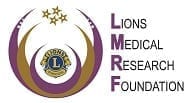Covid has turned our world upside down. It’s brought headache and heightened people’s sense of anxiety which isn’t good for anyone’s mental health. The Lions Medical Research Fund cares about you and we know when it comes helping others, the first step is to help yourself. Here is a helpful guide to dealing with anxiety. Please take care of yourself.
What is anxiety?
You’ve probably heard about anxiety many times, but what does it actually mean to experience it? Anxiety is a common mental health problem that refers to being in a persistent state of worry or displaying excessive amounts of fear. Everyone worries about things now and again especially during Covid, but to suffer from anxiety means that worrying has a debilitating impact on your daily life.
Anxiety disorders are the most common mental health problem in the world, with the World Health Organisation (WHO) suggesting that 1 in 13 people globally suffer from an anxiety disorder.
Physical symptoms
- Feeling light-headed or dizzy.
- Sweating or feeling hot.
- Increased heart rate.
- Panic attacks.
- Gastrointestinal problems.
- Rapid breathing or hyperventilation.
- Nausea or painful stomach.
- Aches and pains in your body.
- Feeling weak and tired.
- Insomnia.
- Changes in sex drive.
Mental symptoms
- Feeling nervous, irritable, or tense.
- Low mood and depression.
- Experiencing a sense of impending danger or fearing the worst.
- Constantly worrying about things.
- Needing reassurance from other people.
- Feeling like everyone is watching you.
- Derealisation: a form of disassociation where you feel like the world isn’t real or you’re not connected to it.
- Depersonalisation: a form of disassociation where you don’t feel connected to yourself, as if you’re watching yourself from an outside perspective.
How do I cope with anxiety?
Below are some strategies you can use to help cope with symptoms of anxiety. These methods can’t replace professional help, but might offer a sense of calm to you when you need it:
- Breathing and mindfulness exercises. There are plenty of techniques you can use to calm yourself down.
- Distracting yourself with friends, family or hobbies. Sometimes we just need to be around people who love us or spend time on hobbies that distract us from feelings of negativity.
- Unwinding with a little me time. Have a long hot bath, light scented candles, listen to calming music and meditate.
- Exercising. It may be the last thing on your mind, but exercising releases endorphins and reduces tension.
- Writing in a diary. Writing has the power to let you release emotions, discuss worries and check whether your fears are rational or not. Sometimes it can really help to get your thoughts down on paper.
- Going to bed early. Sleep is a hugely important factor in maintaining mental health.
- Eating healthy, balanced meals. The food we eat can have a huge impact on our emotional wellbeing, as it is literally fuel for our bodies. Try a nutrition course to learn about how you can use food to improve your mental health.
- Avoiding alcohol, drugs and caffeine. Each of these can have negative effects on your health and wellbeing, so it might be worth giving them up. Caffeine, in particular, may not seem bad, but it can make someone with anxiety feel very jittery.
See your doctor
If you’re still feeling anxious, it’s best to see your doctor. They can recommend the best course of action to take, including seeking professional help. Our friendly team at the Lions Medical Research Fund really do care about you and hope you take the time to look after your health and wellbeing, especially during these very difficult Covid times.
